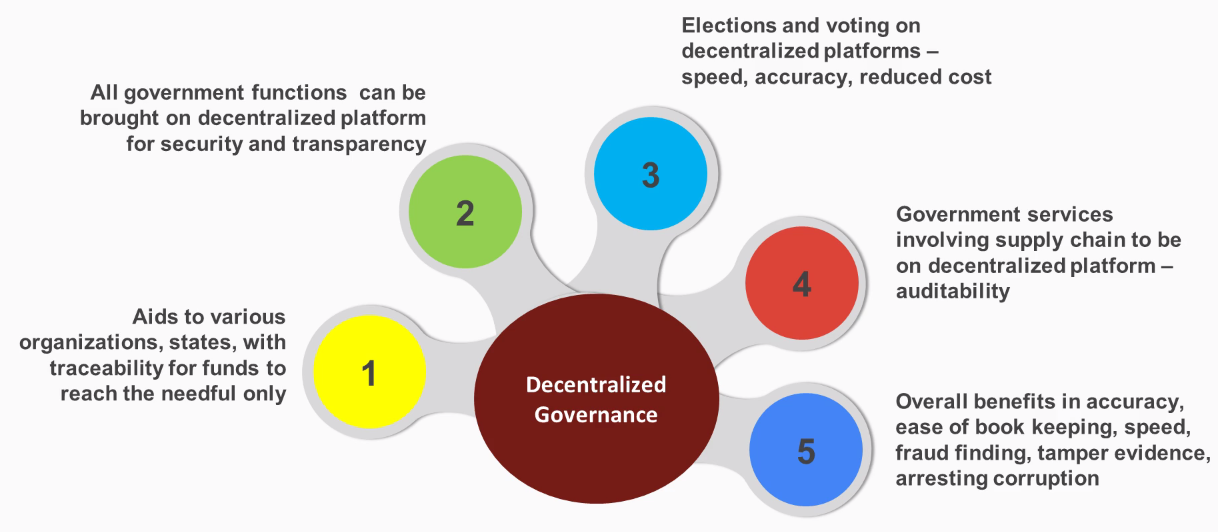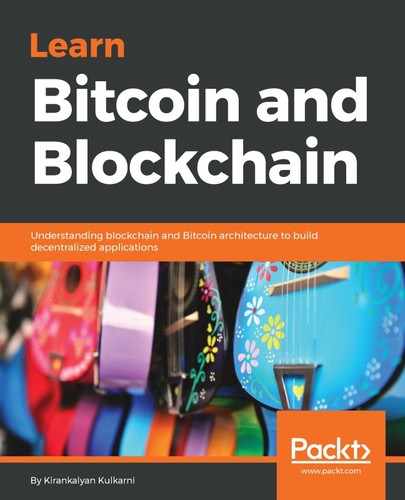Let's further discuss the following sectors and how decentralization impacts them:
- Stock markets: Let's take an example of stock markets to see how decentralization can impact this sector. Today's stock markets have modern computing and the internet has also sped up the transactions. In the modern stock markets that we have today, stock transfer agents are decentralized registrars who drag and share the ownership for issuers and the stock market, while the modern transfer agents use today's latest technology. But the same old centralized register model persists even today. Let's now look into the following challenges that we see in today's modern stock markets:
- The first challenge is that it is centralized and expensive.
- Depositories and transfer agents are the middlemen and are hence a single point of failure.
- Various processes involved, such as a registration, transfer, distribution, scrutinizing, and courier fees, yield higher charges. As the scope of the stock market gets wider and wider, the administration cost keeps on increasing.
- Another challenge we see is limited transparency. There is a lot of information asymmetry, that leads to market advantages to those who have access to this information. There is always a concern to do with forged security and asymmetric counterparty risk.
- Most importantly, the legal ownership remains with the transfer agents in the majority of jurisdictions and the investors do not have the title with them.
Let's look at how decentralization impacts this current status. Centralized and decentralized hubs can be eliminated and the decentralized blockchain based implementation can be used, which will help to directly transfer the shared ownership between the investors, using P2P communication and consensus mechanism. Besides this, the decentralized ledger which gets updates within a minute could also save millions spent on collateral and settlement costs. Decentralization can cut inefficiencies in the share settlement function, trades being settled by P2P communication cuts the middleman out, resulting in a lesser cost of record-keeping. Due to P2P communication, the settlement can happen in real time instantaneously. Needless to say, above all of this, all these being on the shared ledger brings a lot of transparency.
- Banking sector: Let's now look at the impact that decentralization can bring in the banking sector. The typical key routine or procedures carried out in banks on daily basis are know your customer (KYC)and payments and fund transfers. We will look into the KYC processes as well as the payments and transfers. While using the compliance platform and KYC processes, we have umpteen challenges. We will get a detailed gist of these challenges in the points as follows:
- The KYC process is a centralized process and it's done in isolation by each bank.
- It's a repetitive task.
- There are costs which are increasing day by day.
- Bookkeeping of records is always done in isolation.
- The banks do not involve each other in these documentation depositories.
We will now discuss what impact decentralization brings in the section. By using the compliance platform and KYC process of decentralized blockchain technology, banks can reduce operation costs and increase efficiency. KYC can be performed once and can then be made available as a reference for other future transactions. Moreover, once these KYC details are made available on blockchain, they can be used by other banks, accredited institutions, or organizations without the need to re-initiate the KYC for the same customer again and again. This will save the cost spent on the repeated KYC process, the time spent on completing the KYC, and it enables faster and more accurate travel of records. Banks and financial institutions can attract customers since they will improve the ease of work and the speed of work, and the customers will need to be provided with the KYC documents only once.
- Payments or fund transfer: Let's take an example. A typical bank wire transfer transaction takes place across the border and invoice for an exchange. Let's say Jessie needs or wants to transfer 1,000 dollars from her US account to her friend John in India. We can see the transfer transaction for Jessie and John in the following diagram:

Let us look at the challenges faced in the following section:
- Multiple parties are involved in the process. The bank where Jessie holds her account is in the US and involves third-party foreign exchange that is present in the US and third-party foreign exchange that is present in India since John holds his account in India. The money moving across all these accounts take a considerable amount of time, usually anything between 5 and 7 days.
- The second challenge is the time duration for transfer. Even if we assume a same-day transfer from one account to other, we are talking about at least 4 to 5 days minimum.
- The third challenge is private bookkeeping. Each bank keeps its own bookkeeping record privately. This leads to increased time needed for validating proof of ownership of funds.
- The fourth one is the lack of clarity and choice on rate applied. And also customer is not guaranteed to get the desired exchange rate due to the time is taken by the entire process. Moreover, there is no clarity on why a particular rate was applied.
- The fifth and foremost challenge is higher charges and fees. It is needless to state the number of charges applied by all these intermediaries and banks.
So, let's look at how decentralization impacts the foreign exchange process in the sector:
- Now, if this entire foreign exchange process is brought onto the decentralized blockchain platform, the first benefit is in is the elimination of the intermediaries that claim to establish the trust for the transactions. This reduces the time taken at least by half. Now, how do we establish trust in this transaction?
- Well, let the P2P consensus bring transitive trust. Real or fiat currency can be represented in crypto tokens or assets digitally. These tokens can be then transferred through the blockchain program from Jessie to John, almost in seconds. The transaction can be executed in minutes, if not in seconds. It brings transparency in the actual rate applied, speeds up the transaction, reduces the charges or fees drastically, and establishes a secure and transparent book of records for future compliance purposes.
- Many banks across the world today have started collaborating with each other in the foreign exchange space to reduce the time and cost and increase transparency and security.
We will now look at how the decentralized blockchain platform transforms a government or government organizations. As an example, any government in today's world struggles due to challenges in accountability, lack of transparency, and efficiency. Decentralization can help in bringing fair, transparent, and accountable governance, enabling trust and confidence in the citizens. Let's take a look at how decentralization can help in achieving the desired goals as shown in the following diagram:

Let's explore the ways how decentralization can help:
- It helps in providing aid to program in various states and nations and it ensures that the funds reach the intended recipients only.
- All the government operations and systems, such as properties, taxes, public services, social benefits, health benefits, and utilities, if brought on a digital ledger, can bring security and transparency.
- Elections and voting can be brought onto the decentralized platform, which in turn will bring speed, transparency, and accuracy in the election process and will also reduce the cost and complexity involved. The result will be faster and correct.
- The fourth benefit is that the government services that involve supply chain management will be cheaper, accurate, and auditable.
- Lastly, the most important part is that once all the government operations are brought onto the decentralized platform, there will be more accurate in bookkeeping, increasing speed and easing the fraud finding, tempering, and arresting corruption to a larger extent.
